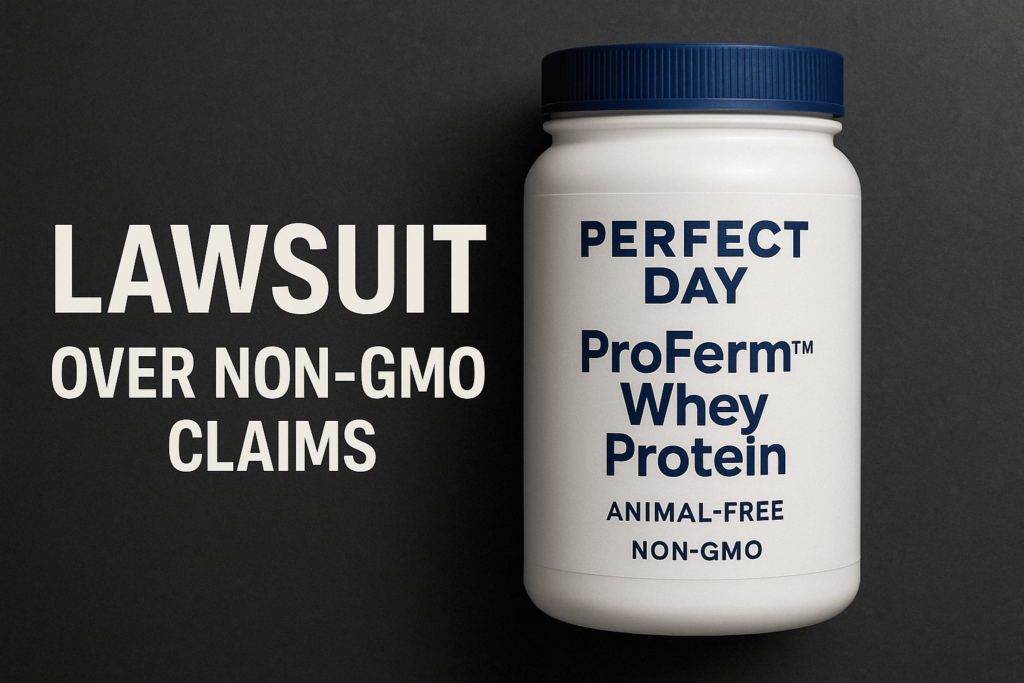California-based Perfect Day, a leading biotech company producing animal-free whey proteins through precision fermentation, is under legal fire in the United States. On April 20, 2025, advocacy groups Organic Consumers Association and Toxin Free USA filed a lawsuit challenging the company’s marketing of its ProFerm whey protein. The case questions the safety and “non-GMO” claims of the product, spotlighting the regulatory gray area around genetically modified microbes in food production.
Perfect Day, a California-based biotechnology company specializing in animal-free dairy proteins through precision fermentation, is facing a lawsuit over alleged deceptive marketing practices. The company is known for developing ProFerm whey protein using genetically engineered Trichoderma reesei, a fungus designed to mimic cow-derived whey without involving animals.
On April 20, 2025, two consumer advocacy organizations—Organic Consumers Association and Toxin Free USA—filed a legal complaint asserting that Perfect Day misrepresents the safety and composition of its ProFerm product. Although the U.S. Food and Drug Administration (FDA) recognized the product as Generally Recognized as Safe (GRAS) in 2020, plaintiffs argue that the product’s labeling as “non-GMO” and “identical to cow’s whey” misleads consumers.
According to the lawsuit, independent testing by The Health Research Institute (HRI) revealed that ProFerm contains 86.6% residual fungal proteins—significantly higher than the 6.7% stated by Perfect Day. These proteins and other fermentation byproducts, which have not been extensively studied in human diets, raise potential risks involving allergies, toxicity, and gut health.
The plaintiffs challenge the “non-GMO” label, noting that while U.S. law permits it if no genetic material remains in the final product, the use of genetically modified microbes in production contradicts the spirit of the label. The lawsuit does not seek financial damages but calls for clearer marketing practices and declaratory relief.
This case marks the first legal challenge against a precision-fermented animal-free protein and highlights growing scrutiny from consumers and regulators as synthetic food technologies enter mainstream markets.
Perfect Day, which recently transitioned to a business-to-business (B2B) model and began setting up a new facility in India, maintains that its products are safe, transparent, and compliant with all U.S. food regulations.
Industry analysts see the case as a crucial inflection point for the alternative dairy sector, signaling the importance of transparent claims, rigorous testing, and clearer communication with an increasingly cautious consumer base.



